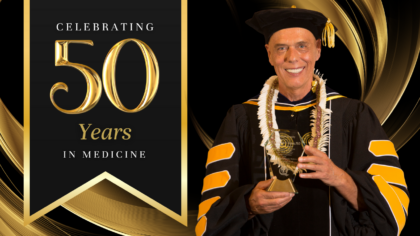Holistic Health Practitioner Salary, Courses, and Degree Options

Caring for another human being is one of the most important and rewarding actions we can take. Yet, so much of contemporary medicine distills care into symptoms and treatment — an incomplete picture that causes disconnect on both sides.
For the holistic health practitioner, salary isn’t the only gain. More important is the immense reward of caring for the whole person, from mind to body and beyond.
What Is a Holistic Health Practitioner?
A holistic health practitioner is a professional who takes a whole-person approach to care. The holistic practitioner understands that a person is more than just a package of organs and tissues. They understand body, mind, emotions, and spirit as interconnected contributors to wellness — or lack thereof.
Holistic Health Practitioner Salary
According to ZipRecruiter, the average holistic health practitioner salary in the United States is $53,747 per year or approximately $26 per hour.
Annual salaries for Holistic Health Practitioners can vary based on factors like experience and location.
Holistic Health Practitioner Career Outlook
The career outlook is strong for holistic health professionals everywhere. A recent Grand View Research report predicts that spending on alternative therapies and holistic health practices will increase 23.7% nationally and 25.1% worldwide, bringing total global spending to $694 billion by 2030.
Becoming a Holistic Health Practitioner: Degree Options
Holistic health practitioners seek higher education to provide the best possible care. Depending on your goals, you may choose to seek an undergraduate, graduate, or doctoral degree program.
Bachelor’s in Holistic Health
Quantum University’s undergraduate degree program teaches the principles of holistic health through the lens of quantum physics — the study of matter, energy, and consciousness. Courses include:
- Aromatherapy: Healing with plant-derived essential oils, usually diluted and either inhaled or applied to the skin
- Auriculotherapy: Stimulating the external ear tissue to alleviate pain and other symptoms
- Biofeedback: Training the body to control automatic processes such as breathing, heart rate, muscle tension, and blood pressure, typically to aid in the management of physical or mental health conditions
- Neuro-linguistic programming: Using a person’s relationship with language to change their thoughts and behaviors
- Nutritional science: Studying and understanding how nutrients interact with each other and the body
- Psychology: Analyzing how the human mind works and how thoughts and feelings govern behavior
Students who successfully complete the full program qualify for the American Association of Drugless Practitioners’ Holistic Health Practitioner (HHP) certification.
Master’s in Holistic Health
The holistic health graduate program takes a deeper look into holistic medicine as a multidisciplinary practice. It delves deeper into the concepts of natural healing and quantum physics with coursework in the following:
- Anatomy and physiology: The structures of the human body and the functions of those structures
- Consciousness acupuncture: The use of acupuncture techniques to control the movement of energy via the smallest quantum particles
- Quantum hematology: The exploration of how energetic bodies affect a person’s internal terrain, focusing on the blood and its correlation with emotional and mental states
- Homeopathy: An advanced study of supported self-healing, including the use of various drug pictures and the selection of appropriate remedies
- Quantum hormonology: The study of human hormones and hormonal conditions as they relate to consciousness and the body’s energetic centers, with a special focus on chakra medicine
- Nutritional medicine: The application of nutritional science to healing practices
- Taoist medicine: The practice of healing based on the traditional concept of Chi, the vital life force or energy current that maintains life
Graduates of the master’s program also qualify for the HHP certification.
Doctorate in Holistic Heath
Students at Quantum University can pursue doctoral degrees in holistic health. This program help healing professionals become leaders in their fields through courses such as:
- Healthcare management: The administration of alternative healing practices
- Herbalism: The practice of utilizing plants and plant-based remedies for medicinal, therapeutic, and health purposes
- Theoretical principles of integrative medicine: The study of a healing approach that incorporates the theories of energy and quantum physics and suggests that consciousness is the foundation of life
- Client Relations and Professional Ethics: Principles, standards, and practices that guide interactions and relationships between professionals and their clients
Those who complete one of the university’s doctoral programs can apply for board certifications with the appropriate credentialing board.
Quantum University Provides Quality Holistic Health Degrees
Education matters when wellness is in your hands. Quantum University offers degree programs in alternative healing, allowing you to provide the quality care you believe in.
Explore your degree options today and find out how you can take your career to the next level.
Individual degree programs can also be combined into Degree Tracks classified as “Fast Track”. These tracks, as well as our Completion Degrees, expedite the completion of your programs. Experience a faster, more cost effective and fulfilling journey towards your holistic medicine degree with Quantum University’s Fast Track options.
Benefits of a Quantum University Education
Quantum University is fully online and 100% self-paced, so you can learn on your schedule. Our esteemed faculty and cutting-edge learning technology ensure an engaging experience. Plus, with board certification as the end goal, you can be confident in your direction and progress.
Become a student today and make a difference tomorrow.














